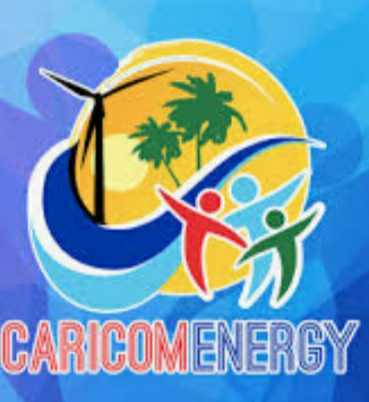
Monday, 16 November, 2020 | Bridgetown, Barbados – Three former CARICOM Energy Ministers led the Regional Energy Dialogue series today, one of the seminal activities of CARICOM Energy Month.
Mr. Darcy Boyce of Barbados; Mr. Phillip Paulwell of Jamaica and Mr. Kevin Ramnarine of the Republic of Trinidad and Tobago, all former Ministers of Energy, reflected on the strides the region has made over the past 10 years towards sustainable energy.
During the solutions-oriented discourse, they also provided their points of view on actions and strategies that can catalyse the regional energy transformation. Mr Paulwell identified at least one opportunity for businesses in Jamaica. He mentioned that Jamaica has a licensed arrangement that allows for power wheeling where consumers who generate excess electricity in one location can use the credit to offset the bill at other sites. Jamaica also intends to establish a hub so other territories can purchase liquified natural gas (LNG) from them, as means of energy security, he said.
Trinidad and Tobago, on the other hand, maintains that energy security challenges in the Caribbean centre around natural disasters and climate resilience. Mr Ramnarine, former Minister of Energy within that CARICOM Member State, also cited the issue of energy cost and the need to “drive it downward”. Likewise, Mr Darcy Boyce of Barbados advocated for the joint procurement of renewable energy equipment and services, remarking that the outcome will be that we “reduce the overall cost of energy in each country and effectively improve the security of our energy supply.”
The moderator for the two-hour discussion was Mr. Winston Connolly, a former independent Member of the Legislative Assembly in the Cayman Islands with responsibility for the development of the National Energy Policy and Plan.
The conversation was held against the backdrop of key mileposts including:
- The April 2013 approval of the CARICOM Energy Policy which is widely considered to be a progressive step towards regional treatment of energy matters, including energy security
- The April 2013 approval of the Caribbean Sustainable Energy Roadmap and Strategy (C-SERMS) for which regional targets were set for renewable energy contributions to electricity generation in CARICOM
- The doubling in the last decade of the aggregated contribution of renewable energy to the Region’s electricity sector
The Regional Energy Dialogue continues Tuesday 17 November through Thursday 19 November with a range of guests and topical discussions that are high on the regional energy agenda.
On Tuesday, institutional leaders will tackle the subject ‘Visions and innovations’. Discussants will be Dr. Gary Jackson, Executive Director of the Caribbean Centre for Renewable Energy and Energy Efficiency (CCREEE); Ms. Elizabeth Riley, Executive Director (ag) Caribbean Disaster Emergency Management Agency (CDEMA), and Dr. Colin Young, Executive Director, Caribbean Community Climate Change Centre. The host will be Dr. Cletus Bertin, Executive Director, Caribbean Electric Utility Services Corporation (CARILEC).
On Wednesday, Utility Managers will discuss ‘Grid Integration of Renewable Energy’. The panel will feature Mrs. Sheena Kuylen-Simpson, Manager, Systems Planning & Engineering at the Belize Electricity Ltd; Mr. Lincoy Small, Director, Systems Operations, Jamaica Public Service Company Ltd. And Mr. Jonathan Kelly, Engineering Manager, St. Kitts Electricity Company. Dr. Devon Gardner, Programme Manager, Energy at the CARICOM Secretariat will host this session.
The session on Thursday will cover ‘Fuel Cells and Hydrogen’ and will feature a panel of innovation leaders: Mr. Phillip Julien, Managing Director, NewGen Energy Ltd; Mr. Mike Strizki, Founder, Hydrogen House Project (USA). The host will be Dr. Ruth Potopsingh, Associate Vice President, Sustainable Energy, University of Technology.
The Dialogue series is being held in lieu of the biennial Caribbean Sustainable Energy Forum (CSEF) which was scheduled for Saint Lucia this month, but was postponed because of the pandemic. CSEF has been held since 2008 and provides the opportunity for high level dialogue and networking among key national, regional and international energy stakeholders in the public and private sectors on the progress towards sustainable energy.
About CARICOM Energy The Caribbean Sustainable Energy Roadmap and Strategy (C-SERMS) was designed by CARICOM Energy to build on existing efforts in the Region and to provide CARICOM Member States with a coherent strategy for transitioning to sustainable energy. CARICOM Energy is managed by the CARICOM Secretariat, with implementation coordinated by the CCREEE.
CARICOM Energy was commissioned in 2008 under the Directorate of Trade and Economic Integration to coordinate the finalization of the regional energy policy and provide strategic management for a programmatic approach to the region’s energy issues.
About The CCREEE
The Caribbean Centre for Renewable Energy and Energy Efficiency (CCREEE) is a specialized institution of the Caribbean Community (CARICOM). Established within the framework of the Global Network of Regional Sustainable Energy Centres (GN-SEC), the CCREEE is the implementation hub for sustainable energy activities and projects within the CARICOM region.
ABOUT TAPSEC
The Technical Assistance Programme for Sustainable Energy in the Caribbean (TAPSEC) supports the region’s transition to a low-carbon, sustainable and climate-compatible development pathway by increasing and improving access to modern, affordable and sustainable energy services, to the benefit of all Caribbean citizens, especially those who are most disproportionately affected by a lack of access to energy.
To achieve this mission, through multi-stakeholder partnerships, the TAPSEC team leads the implementation of Policy, Information and Capacity Development, and Finance interventions towards the implementation of the CARICOM Energy Policy (CEP), the Caribbean Sustainable Energy Roadmap and Strategy (C-SERMS), and the various national energy policies and strategies of Caribbean states.
The TAPSEC is implemented by the Deutsche Gesellschaft für Internationale Zusammenarbeit (GIZ) GmbH and made possible through the financial support of the European Union (EU) under the 11th European Development Fund (EDF-11), with an additional financial allocation from the German Federal Ministry of Economic Cooperation and Development.
The TAPSEC is implemented in collaboration with the Caribbean Community (CARICOM) Secretariat and the Ministry of Energy and Mines (MEM) of the Dominican Republic.






